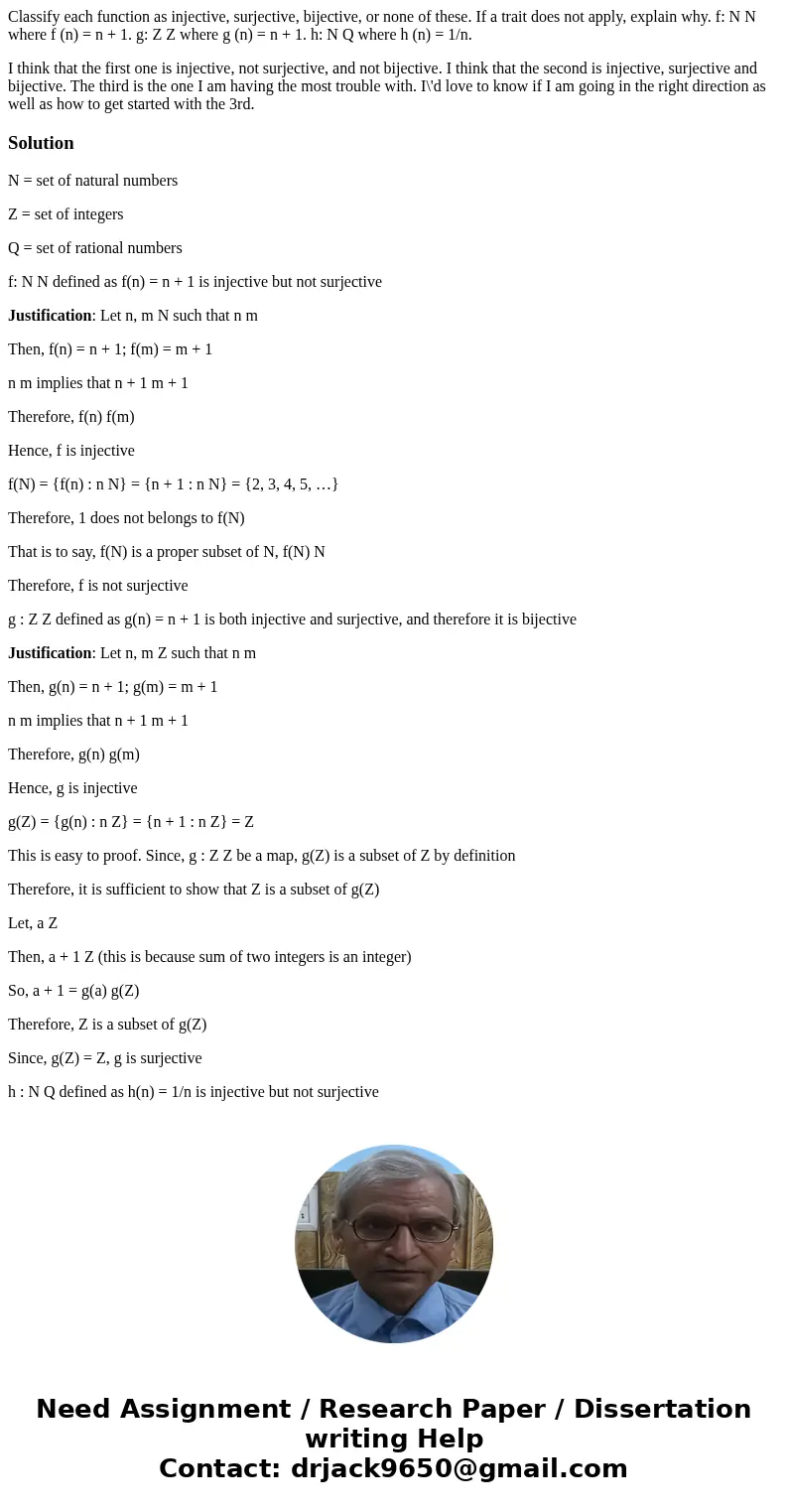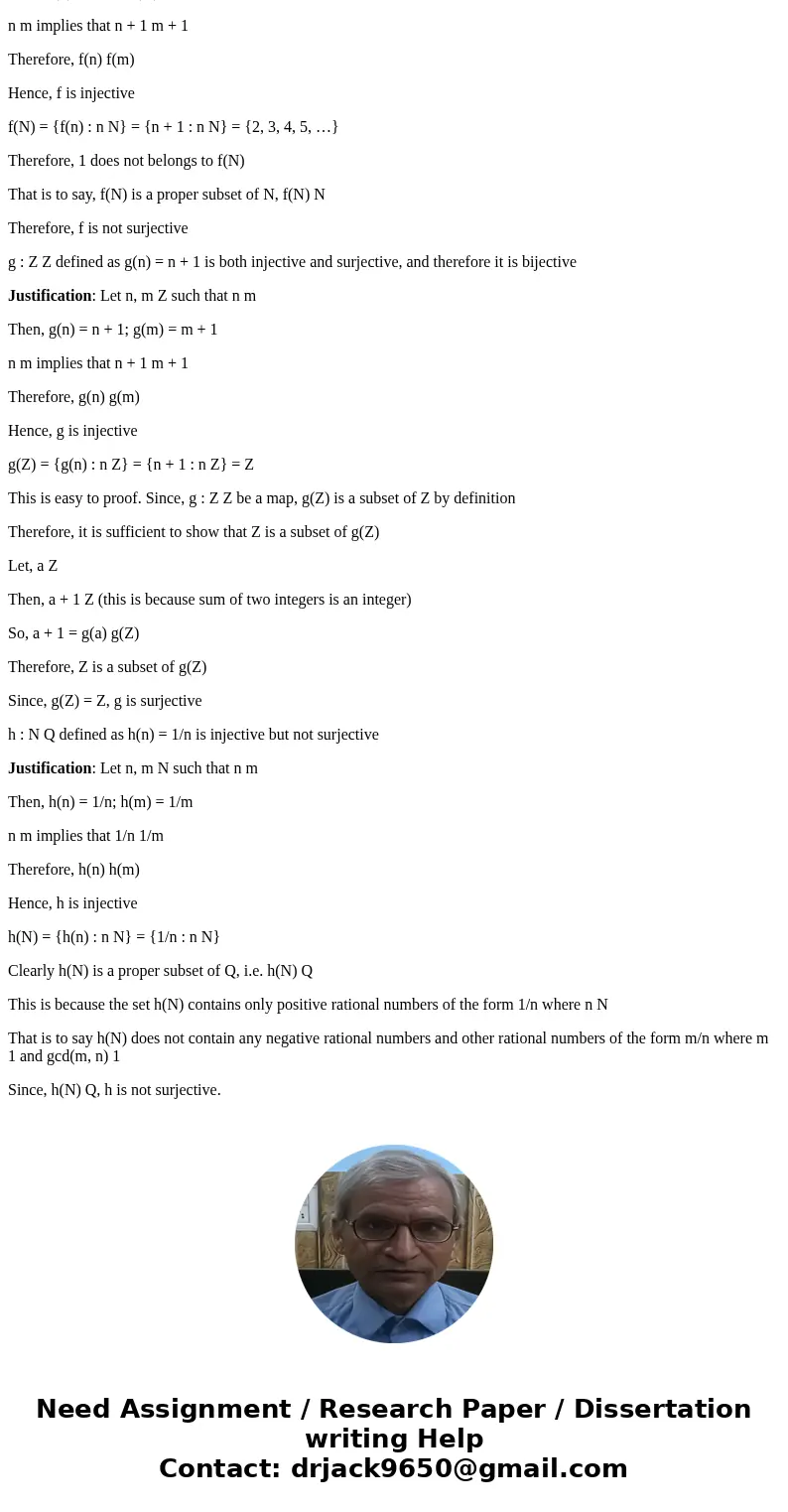Classify each function as injective surjective bijective or
Classify each function as injective, surjective, bijective, or none of these. If a trait does not apply, explain why. f: N N where f (n) = n + 1. g: Z Z where g (n) = n + 1. h: N Q where h (n) = 1/n.
I think that the first one is injective, not surjective, and not bijective. I think that the second is injective, surjective and bijective. The third is the one I am having the most trouble with. I\'d love to know if I am going in the right direction as well as how to get started with the 3rd.
Solution
N = set of natural numbers
Z = set of integers
Q = set of rational numbers
f: N N defined as f(n) = n + 1 is injective but not surjective
Justification: Let n, m N such that n m
Then, f(n) = n + 1; f(m) = m + 1
n m implies that n + 1 m + 1
Therefore, f(n) f(m)
Hence, f is injective
f(N) = {f(n) : n N} = {n + 1 : n N} = {2, 3, 4, 5, …}
Therefore, 1 does not belongs to f(N)
That is to say, f(N) is a proper subset of N, f(N) N
Therefore, f is not surjective
g : Z Z defined as g(n) = n + 1 is both injective and surjective, and therefore it is bijective
Justification: Let n, m Z such that n m
Then, g(n) = n + 1; g(m) = m + 1
n m implies that n + 1 m + 1
Therefore, g(n) g(m)
Hence, g is injective
g(Z) = {g(n) : n Z} = {n + 1 : n Z} = Z
This is easy to proof. Since, g : Z Z be a map, g(Z) is a subset of Z by definition
Therefore, it is sufficient to show that Z is a subset of g(Z)
Let, a Z
Then, a + 1 Z (this is because sum of two integers is an integer)
So, a + 1 = g(a) g(Z)
Therefore, Z is a subset of g(Z)
Since, g(Z) = Z, g is surjective
h : N Q defined as h(n) = 1/n is injective but not surjective
Justification: Let n, m N such that n m
Then, h(n) = 1/n; h(m) = 1/m
n m implies that 1/n 1/m
Therefore, h(n) h(m)
Hence, h is injective
h(N) = {h(n) : n N} = {1/n : n N}
Clearly h(N) is a proper subset of Q, i.e. h(N) Q
This is because the set h(N) contains only positive rational numbers of the form 1/n where n N
That is to say h(N) does not contain any negative rational numbers and other rational numbers of the form m/n where m 1 and gcd(m, n) 1
Since, h(N) Q, h is not surjective.


 Homework Sourse
Homework Sourse